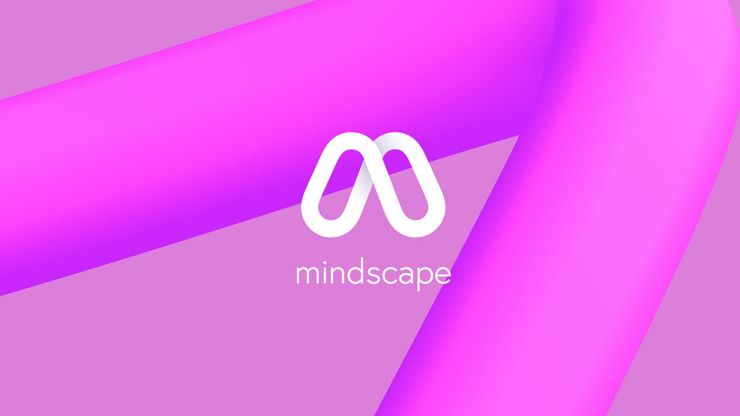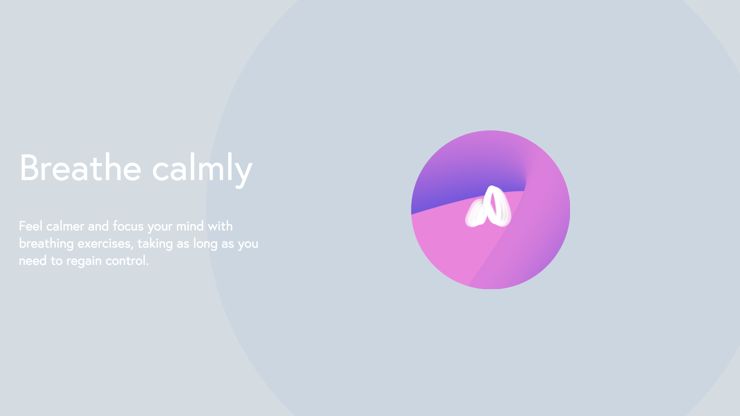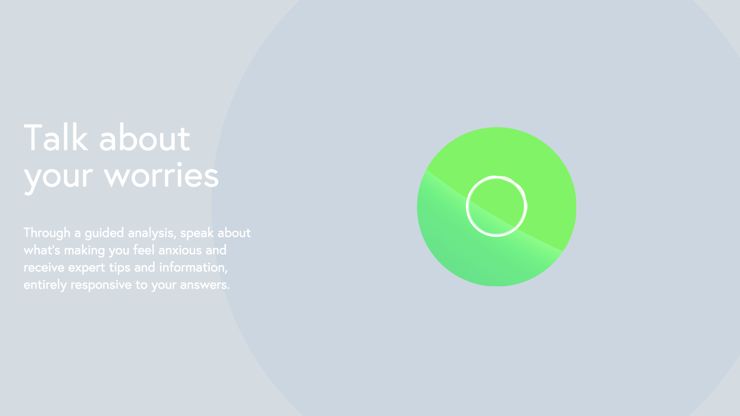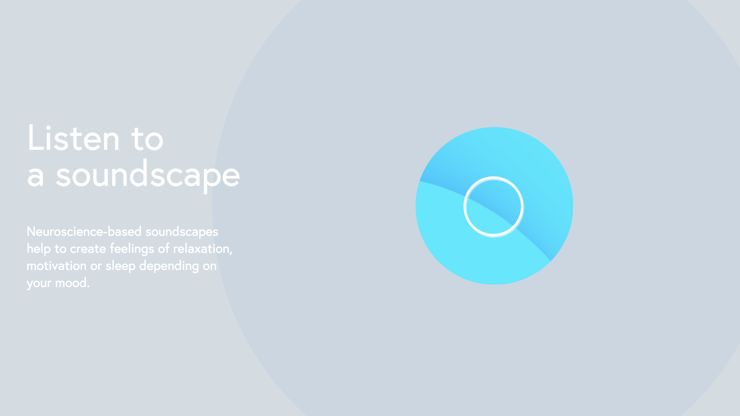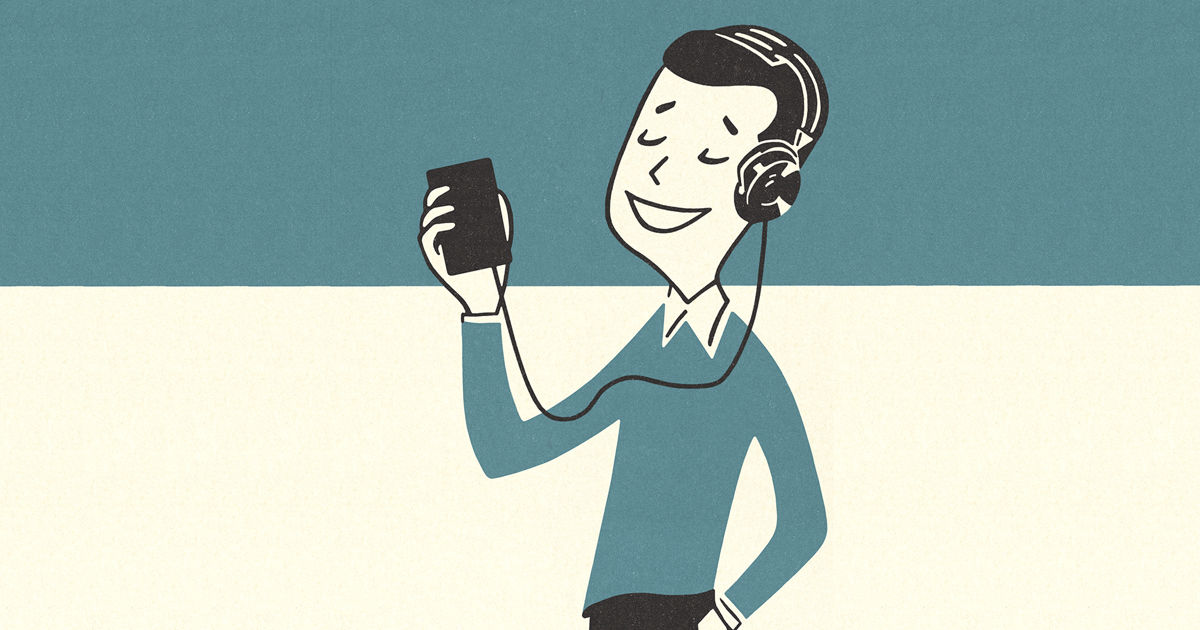How to... positively influence your mental well-being with sound
MassiveMusic's James Bargent talks us through the apps, tracks and social events that use audio to sooth your racing mind.
Mental health is a hot topic in the media, and the mantra of ‘music as medicine’ is making ever greater gains in the commercial sphere.
Combine increased awareness with the accessibility granted by technology (specifically apps and music streaming services) and you’ve got an explosion of progress.
If idly escaping into screens and headphones is too isolating and dystopian, then there are events for groups to congregate in a dopamine-rich music-fuelled exercise binge - or simply a good group lay-down.

Above: MassiveMusic's James Bargent
(H)appiness
Apps focused on mental well-being are myriad. Whether it is to create calm, sleep, to focus or to motivate, the healing hands of music brings the whole song and dance to the device in your palm.
Unwanted noise is symptomatic of modern life and a well-documented source of stress; cars blaring drum ‘n’ bass at 3am, flatmates slamming the door at 4am and foxes producing what sounds disturbingly like blood-curdling murder at 5am. Leaving on television static was once just for babies, but now it’s a thing of the past (literally... do TVs even do static these days?).
Enter, Hear; an app that, intriguingly, introduces more noise into your ears based on the real-world noise around you… you know, to drown out the unwanted noise.
Before you think, 'isn’t that like covering up a bad smell with cheap air freshener?', it's not, unless your air freshener is brought to life by pretty algorithms. In practice, Hear smoothly blends all the unwanted sounds together in a blissfully distorted unrecognisable jumble.
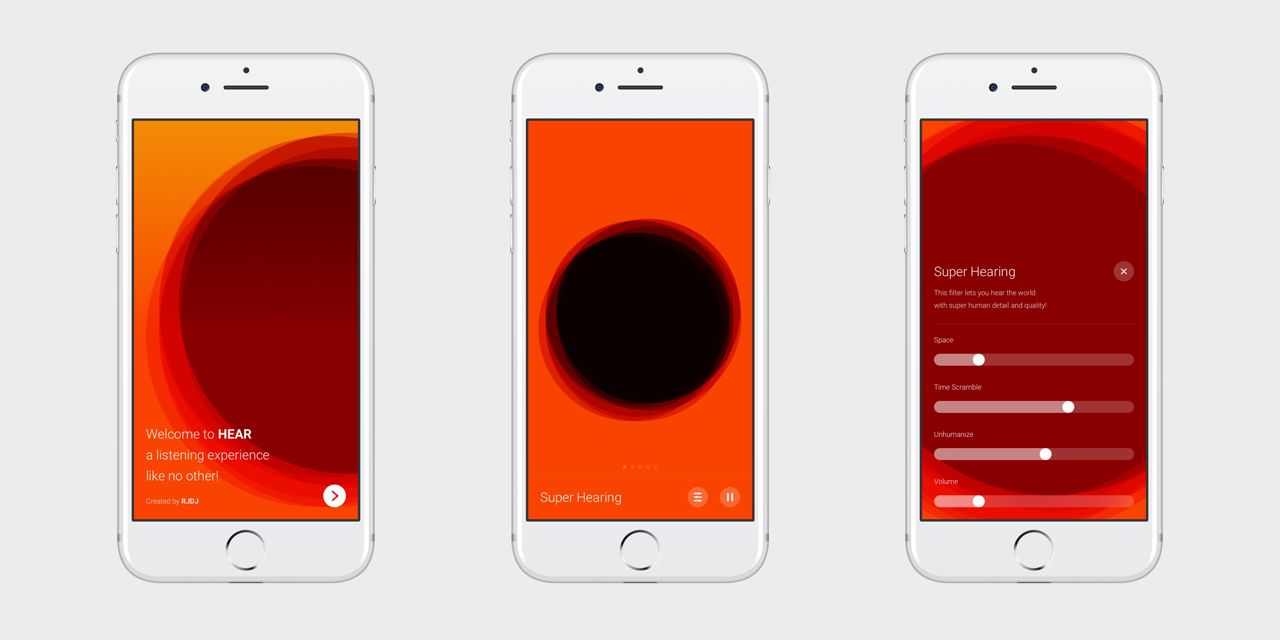
While Hear helps with extraneous noise, what about the most persistent of all noises?
Whether the voice in your head is challenging you with insomnia, a loss of motivation or anxiety, voice-activated app, Mindscape, offers you a solution that won’t leave you having obtusely psychedelic dreams.
Based on your responses to prompts, Mindscape offers a bespoke, music-based solution to whatever it is you are having issue with.
The emotional power of music is well-known, but the physiological response is equally valuable when it comes to influencing well-being. For example, a gradually slowing tempo can create a sense of calm, slowing breathing and heart rate, which helps with the symptoms of stress or anxiety.
Musicians use their craft as an expressive tool for communicating their feelings. But music can be called upon by non-musicians too as a way of understanding our emotional state.
Cove is an NHS listed mental health app that serves as a mood journal. In it, you are prompted to select sounds and instruments that reflect your mood and then can freely create a looping sequence.
It’s another method of encouraging people to engage with music as a representation and record of your mood.
Streams of consciousness
For those that prefer to curate their mental state by streaming music, it’s never been easier.
If you’re like me, your Spotify playlists are like a musical journal. I not only keep monthly playlists (going back to 2013), but I further divide by style and mood. The ‘mood’ folder has long superseded the ‘style’ folder. I’m convinced this reflects our shifting listening habits.
As genres are blurring into increasingly hyphenated sub-genres and hybrids, we may as well do away with identifying ourselves by such transient terms.
Ask a friend what they like listening to, and they will more often say, “I don’t know, anything really, depends on my mood”, or even, “I just stick on a playlist”.

There’s no shortage of pre-made public playlists across streaming services, rather like a pharmacy shelf populated with instant mood fixes. They may be good discovery or emergency tools, however some may find this ‘one playlist fits all’ idea too impersonal.
Off-the-shelf styles associated with certain mental states can often settle comfortably into cliché. For example, focus is often achieved by classical or neo-classical piano, lo-fi repetitive beats, or atmospheric tones.
Perhaps the best cure for your anxiety might be in dissonant dark sound design or avant garde jazz. There are common averages in music styles for moods, but one size doesn’t fit all; one person’s ‘happy’ is another person’s hell.
Sound baths & lactic acid
It is perhaps short-sighted to discuss the answers technology provides to the questions of happiness.
As social animals, it is not just connectivity that matters, but intimacy and being in the presence of others. Music, in its most primal form, was used as a mode of dance and community bonding, and we are now seeing this inspiring new forms of wellness-oriented events.
Legendary Icelandic band Sigur Ros are an example of outsiders taking notice and tapping into this growing trend, creating sound baths for their audiences. Inspired by the use of music to aid a form of group meditation, it is now transcending its origins as ‘gong therapy’ and entering the performance art scene.
Mindfulness is so intrinsically associated with this movement that Sigur Ros’ performance of Liminal in Hyde Park this July began with a thirty minute guided meditation before the first ambient synth tones emerged.
Perhaps a less esoteric way of getting some human contact - other than avoiding the self-service machines in Tesco - is aerobic activity. Sober day-raves, spinning and other popular exercise trends all have music at the core of their attraction; it’s the fuel, it’s the motivation. An established example is Morning Gloryville.
You need only look at their website to witness the ecstasy they’re feeling (but not taking) at these events. It’s age-old advice: more exercise, more social contact, more of what you love (loud music?) And it appears to work for a good few! Of course, the lack of a hangover, and the productivity achieved the day after can’t be undervalued in the calculation of well-being. You certainly won’t be sweating over Brexit while sweating over a bike.
Hear that? Your colleague is asking you what you’re getting for lunch? Focus! You’re almost finished reading. You look concerned. Take a breath. That’s your internal voice worrying about that chronic unease in your stomach.
Is it hunger, or is it your anxiety playing tricks?
Stay with me. Stick on some headphones and block it all out; the voices, the negative thoughts. Or don’t.
You could stop reading this now, just several sentences from the end and stick on some pounding techno for the whole office to hear. Indulge in the social catharsis with your colleagues, and all of those concerns will shrink away.
Whichever mind-state it is you’re looking to change, improve or enhance, it could be more available to you than you realise. It’s fast, often free, and accessible anywhere and sounds bloody great.
)

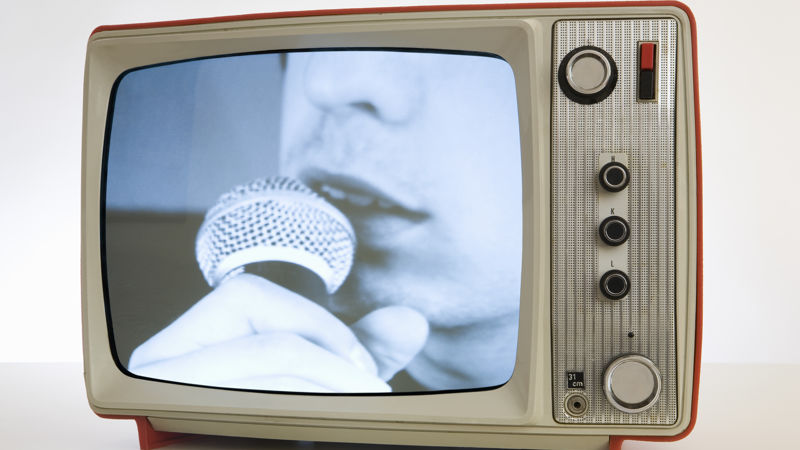


 + membership
+ membership





